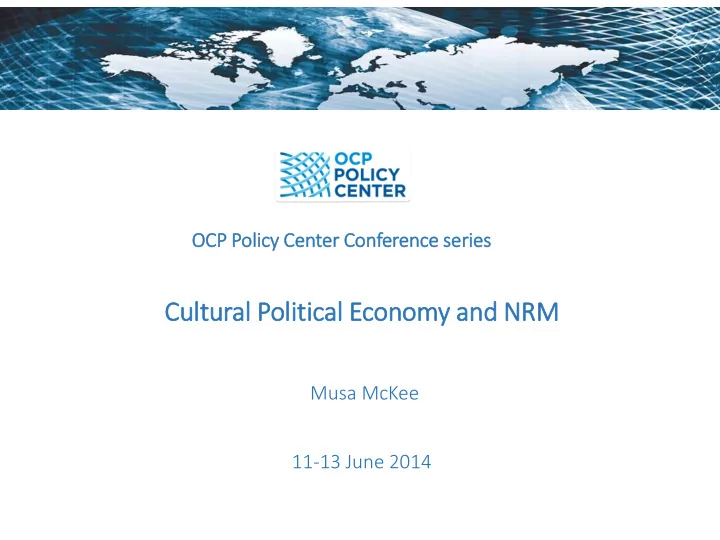

OC OCP Pol olicy Cen enter Con onference ser series Cu Cult ltural l Poli liti tical l Economy and NRM Musa McKee 11-13 June 2014
Culture? • ‘the social process whereby people communicate meanings , make sense of their world, construct their identities , and define their beliefs and values’ (Miller et.al 2010) . • But it also includes material or ‘extra - semiotic’ elements
Evolutionary mechanisms of Variation, Selection and Retention • Variation – the contingent emergence of semiotic practices and extra-semiotic properties • Selection – the privileging of particular practices and properties • Retention – on-going realisation and structural coupling
Some experienced variations in Egypt • on-farm management (‘blame the farmers’) , • to irrigation management transfer (‘ organise the farmers’) • to organisation at the river basin level - (‘one size fits all’) • to more market-inspired reform . (‘let them eat grapes’) (Mollinga et.al 2007)
‘Bridging Science and Policy’? The heart of the issue
1. Centrality of Politics • The persistence of issues of inequality, environmental degradation, malnutrition, poverty and water scarcity are political , rather than purely technical . • Solutions require political innovation as much as they do technical innovation • Speak with power - rather than to it maybe? • The ‘politics of policy’
2. Centrality of the State • As a network of interests and resources for implementation (policy-shaping community) • Other actors are involved and are influencial • Critical awareness needed of short-term approach to ‘ returns ’ and implementation informing project selection • Important capacity to institutionalise and enforce change
3. Complexity – a point of departure • Awareness of multiple pluralities – institutions , actors and functions related to nexus elements change over time and space • issue-driven research – approaching stakeholders around a particular issue; develop the appropriate boundaries and concepts for that debate-based on the context.
Thank you! SOAS, University of London musa_mckee@soas.ac.uk
Recommend
More recommend